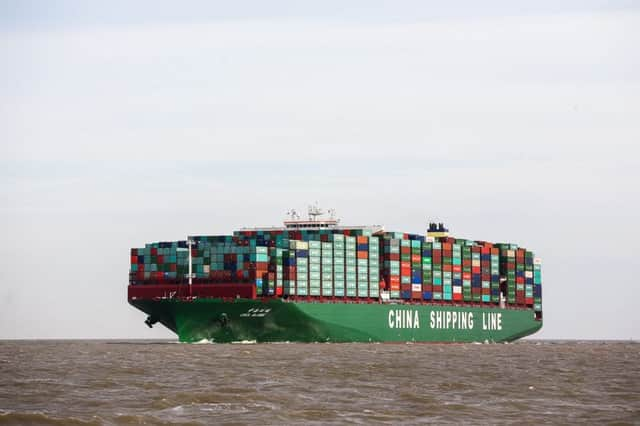UK deficit declines on plunging oil prices


Official figures showed that the shortfall between exports and imports narrowed to £1.4 billion in November from £2.2bn the previous month – the smallest since June 2013.
Much of that was down to a fall in the value of imports, however, rather than an increase in Britain’s export activity.
Advertisement
Hide AdAdvertisement
Hide AdImports fell by more than £1bn in the month, which included a sharp fall in oil imports. The price of a barrel of Brent crude has halved since August due to an oversupply of black gold and a slowdown in global demand. Separate figures revealed that UK manufacturing grew by 0.7 per cent in November, reversing a contraction of the same size the previous month. It equalled the pace of growth in April and has not been better since last February.
But the wider production sector slowed by 0.1 per cent, dragged lower largely by oil and gas extraction due to maintenance work in the North Sea.
A third set of figures – all of them published by the Office for National Statistics (ONS) – showed the construction industry shrank by 2 per cent in November, its second monthly fall in a row.
Some experts said the data added to fears that the recovery was slowing in the fourth quarter, with unofficial survey results pointing to GDP growth of 0.5 per cent for the last three months of the year, down from 0.7 per cent in the third quarter.
Markit chief economist Chris Williamson said: “Disappointing official data are adding to survey evidence which indicate that the rate of UK economic growth slowed towards the end of last year.”
He said it meant the Bank of England would take an “increasingly cautious” approach on when to raise interest rates from their current low of 0.5 per cent.
But David Kern, chief economist at the British Chambers of Commerce, said the trade and manufacturing data were better than expected with the narrowing of the deficit for the second month in a row “particularly welcome”.
He added: “In spite of these positive figures there is no room for complacency. The UK faces a national challenge when it comes to trading with the world.
Advertisement
Hide AdAdvertisement
Hide Ad“The [Bank of England’s] monetary policy committee must persevere with low interest rates for most of this year and we need to redouble our efforts to place exports at the heart of businesses’ growth strategy.”
A breakdown of the ONS data showed that while goods exports fell by £100 million in November, imports were £1.1bn lower, including a £700m fall in fuel imports.
The overall trade figure reflects a goods deficit of £8.8bn – about £1bn lower than it was in October – with a surplus on services of £7.4bn.
Meanwhile, key US data showed that job growth increased briskly in December, with employers adding a better-than-expected 252,000 jobs.
However, wages slipped in the latest sign that tightening labour market conditions have yet to give much of a boost to workers.
Marcus Bullus, trading director at MB Capital, said: “The mixed signals in this data make it really difficult for the markets to digest.”
SUBSCRIBE TO THE SCOTSMAN’S BUSINESS BRIEFING